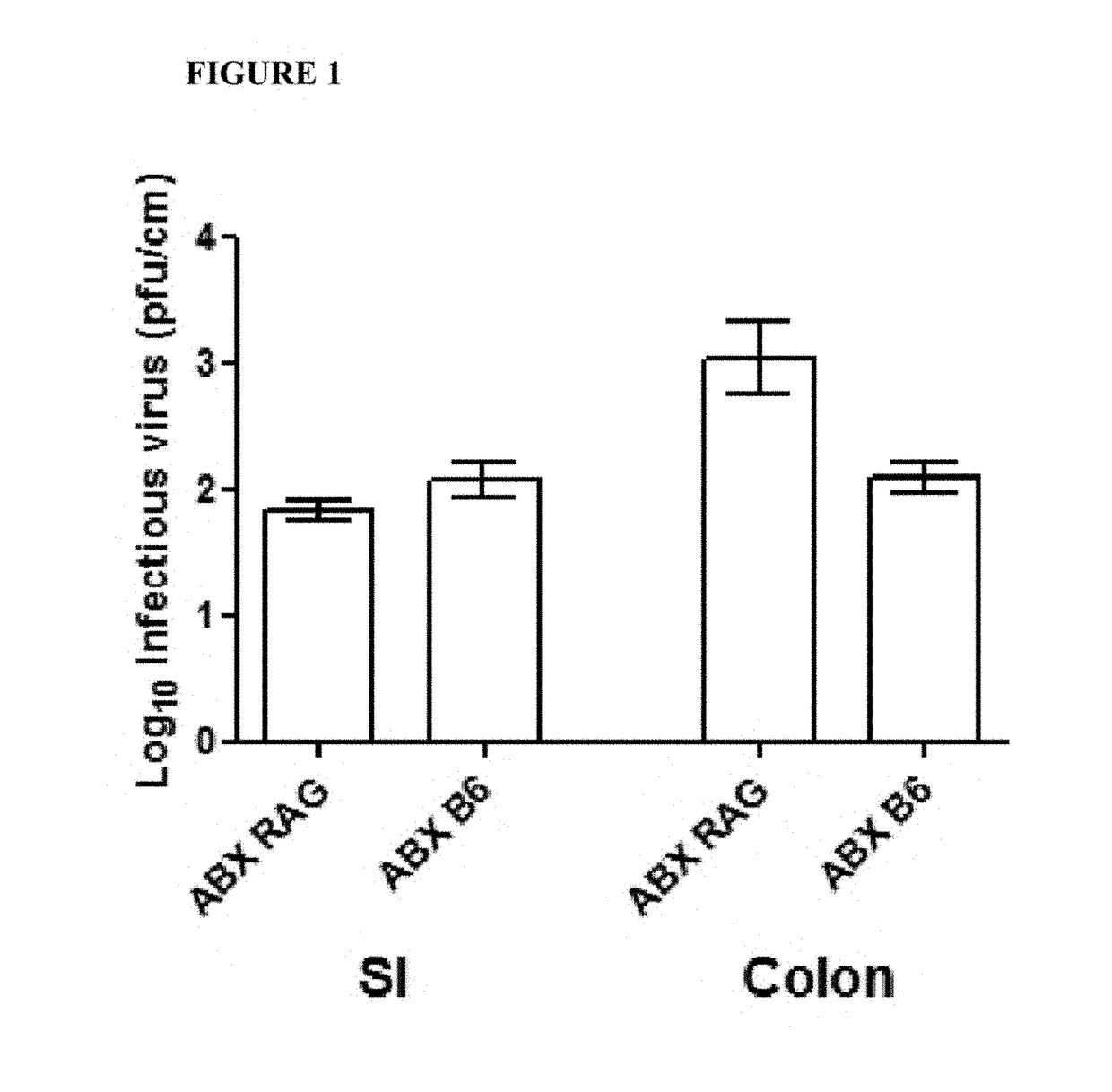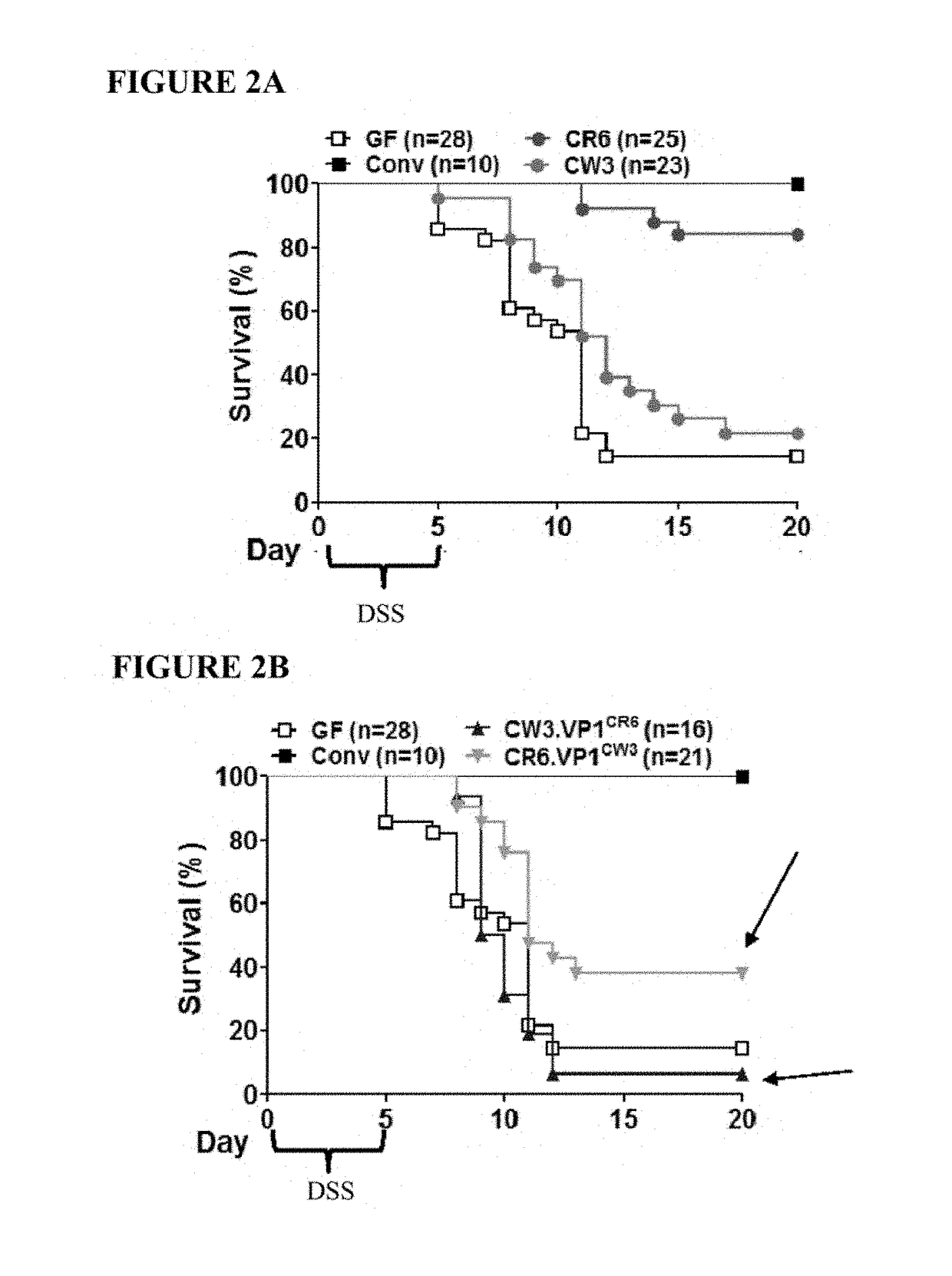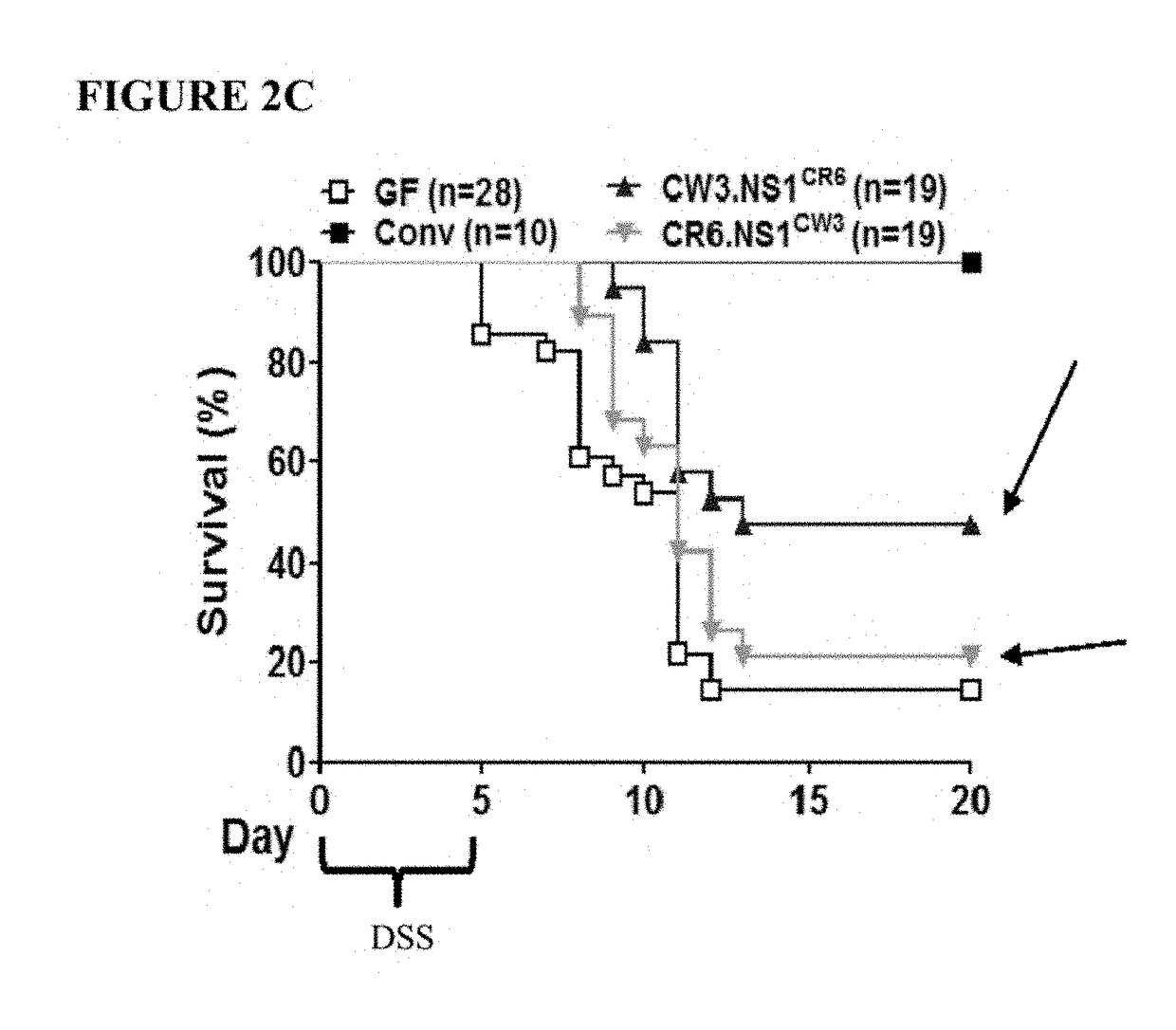Methods and compositions for treating dysbiosis and gastrointestinal and inflammatory disorders
a technology of dysbiosis and gastrointestinal and inflammatory disorders, applied in the direction of viruses/bacteriophages, genetic material ingredients, peptide sources, etc., can solve the problem of not knowing whether such ligands can enhance immune-mediated colonization resistance, and achieve the effect of easy detection
- Summary
- Abstract
- Description
- Claims
- Application Information
AI Technical Summary
Benefits of technology
Problems solved by technology
Method used
Image
Examples
example 1
[0141]Compared with MNV CR6, MNV CW3 has been shown to be more virulent and less capable of establishing persistent infection in conventional mice. These functional differences between these two strains have been attributed to amino acid sequence differences in the capsid protein VP1 and the poorly characterized protein NS1 / 2 (also referred to as N-term) (Nice et al., J Virol. 2013; 87(1):327-334; Strong et al., J Virol. 2012; 86(6):2950-2958; Tomov et al., J Virol. 2013; 87(12):7015-7031).
[0142]To identify the genomic region of MNV CR6 that accounts for its ability to protect against intestinal injury, germ-free mice were infected with chimeric viruses that have specific regions of CR6 and CW3 swapped with one another. Germ-free C57BL / 6 mice (bred onsite in a gnotobiotics facility) were removed from gnotobiotic isolators and kept on antibiotics (1 g / L ampicillin, 500 mg / L vancomycin, 1 g / L neomycin sulfate, and 1 g / L metronidazole) throughout the study to maintain sterility. They w...
example 2
[0146]The effect of MNV CR6 (SEQ ID NO: 2), MNV CW3 (SEQ ID NO: 3), and CW3 with the NS1 / 2 region of CR6 (CW3.NS1CR6; SEQ ID NO: 112), and CR6 with the NS1 / 2 region of CW3 (SEQ ID NO: 111) on cytokine production was examined. A multiplex bead array in immortalized bone marrow derived macrophages (iBMDMs) were studied 24 hours post infection with the MNV. As shown in FIG. 4, CW3 induces increased production of pro-inflammatory cytokines IFNβ, IL-6, TNFα, and IL-1α, 24 hours post infection as compared with production of these cytokines induced by CR6. Replacing NS1 / 2 of CW3 with that of CR6 was sufficient to decrease the cytokine response, which is consistent with the role of NS1 / 2 in cytokine responses. Replacement of CR6 NS1 / 2 with CW3, however, only partially led to the production of cytokines. That the amount of IFNβ produced during CR6 infection is low, surprisingly suggests a mechanism by which the virus evades or suppresses the response.
[0147]For the assays, plasmids containing...
PUM
| Property | Measurement | Unit |
|---|---|---|
| Disorder | aaaaa | aaaaa |
Abstract
Description
Claims
Application Information
 Login to View More
Login to View More - R&D
- Intellectual Property
- Life Sciences
- Materials
- Tech Scout
- Unparalleled Data Quality
- Higher Quality Content
- 60% Fewer Hallucinations
Browse by: Latest US Patents, China's latest patents, Technical Efficacy Thesaurus, Application Domain, Technology Topic, Popular Technical Reports.
© 2025 PatSnap. All rights reserved.Legal|Privacy policy|Modern Slavery Act Transparency Statement|Sitemap|About US| Contact US: help@patsnap.com



